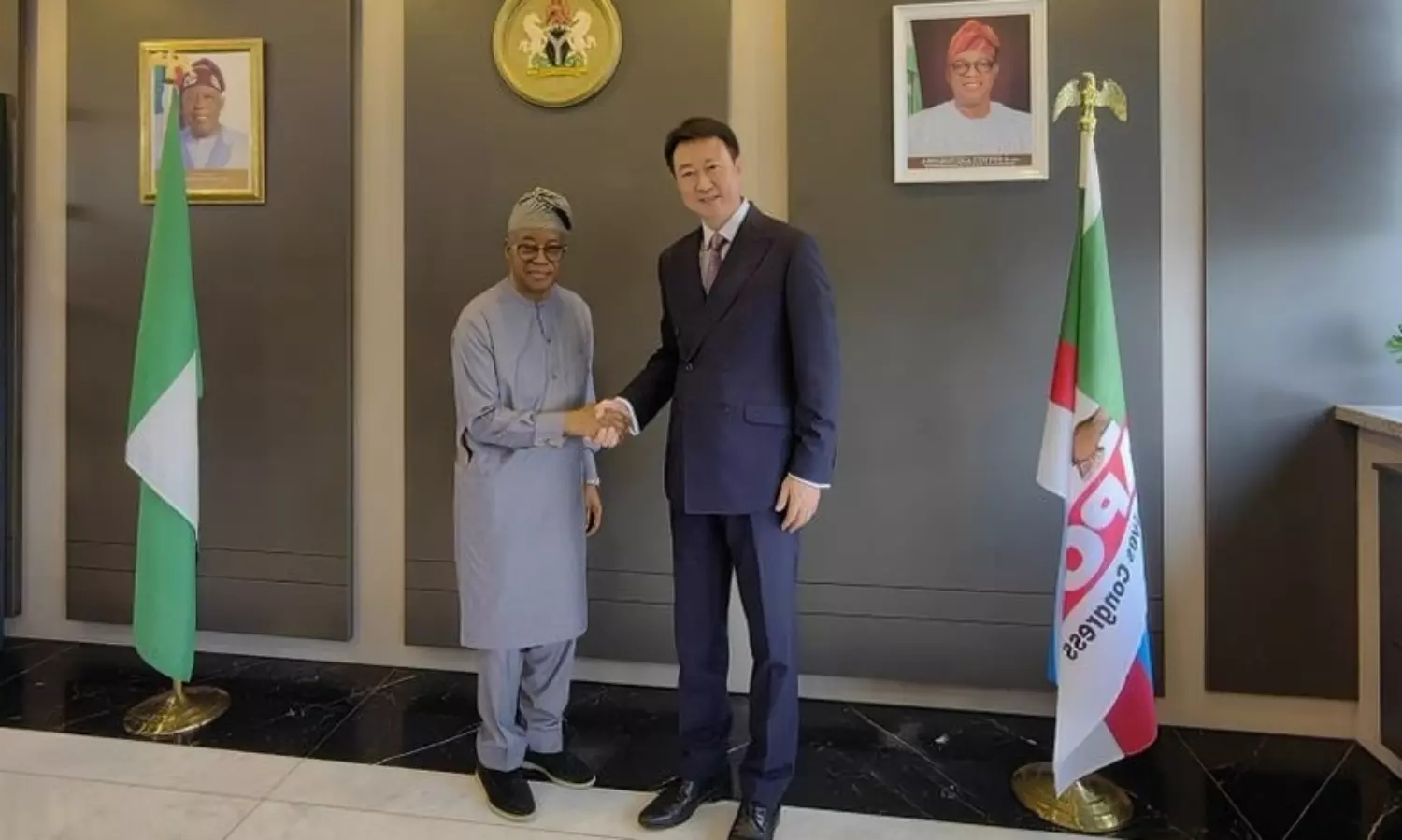Nigeria in talks with China to boost marine and blue economy ties
China’s zero-tariff policy set to boost Nigerian exports, trade growth and sustainability in maritime cooperation.

On September 4, 2025, Chinese Ambassador to Nigeria Yu Dunhai met with Nigeria’s Minister of Marine and Blue Economy, H.E. Adegboyega Oyetola, to deepen cooperation in maritime development and expand opportunities in the blue economy. The meeting builds on the stronger bilateral engagement that followed Nigerian President Bola Tinubu’s state visit to China in 2024.
Expanding bilateral cooperation
Dunhai said cooperation between China and Nigeria has maintained strong momentum since Tinubu’s visit, with maritime and blue economy initiatives emerging as new drivers for development. He pointed to progress at Lekki Port, one of Nigeria’s flagship maritime projects with Chinese involvement, as an example of this cooperation.
He noted that China’s zero-tariff policy on Nigerian goods would enable the export of more high-quality Nigerian products, boosting trade and port-related growth. He stressed that China was ready to work with Nigeria to promote sustainability and enhance the quality of practical cooperation.
Oyetola thanked China for its support in port infrastructure and talent development. He said Nigeria was willing to learn from China’s experience, strengthen policy coordination, build capacity and speed up project implementation to advance the marine economy for the benefit of both countries’ citizens.
Moreover, during the meeting earlier this month, Ambassador Dunhai stressed that China was ready to support Nigeria in promoting sustainability across the blue economy. Oyetola said advancing the marine economy required learning from international best practices, coordinating policies and building capacity to ensure projects are effectively delivered.
Nigeria’s coastal and marine assets
Nigeria’s coastline stretches across eight states and accounts for about 25% of the country’s population. The coastal region includes inshore waters, lagoons, estuaries and mangroves, particularly in the Niger Delta.
The area supports vital industries such as oil and gas, fishing, shipping, agriculture, sand mining and tourism. It is also home to major ports and cities, including Lagos, which anchors Nigeria’s trade and logistics.
Yet the region faces serious challenges. Coastal erosion, flooding, overexploitation of resources, marine pollution, mangrove depletion and invasive species such as Nypa palm are eroding livelihoods. Climate change and rising sea levels are making these problems worse. The creation of the Ministry of Marine and Blue Economy in 2023 reflected Nigeria’s recognition that protecting coastal resources is as important as unlocking new opportunities from them.
Trade as a Foundation for Partnership
Trade data underlines the importance of maritime cooperation in China-Nigeria relations. According to CEIC data, reported by the General Administration of Customs, China’s exports to Nigeria stood at $2.15 billion in March 2025, up from $1.09 billion in February. Since 2001, Chinese exports to Nigeria have averaged $814.84 million per month, with a peak of $2.48 billion in August 2021.
Nigeria’s exports to China remain modest in comparison. CEIC records show total exports at $105.76 million in September 2024, down from $161.51 million in August. From January 2007 to September 2024, exports averaged $80.74 million per month, reaching a high of $2.84 billion in July 2012 and a low of zero in June 2008.
According to the United Nations COMTRADE database, China’s imports from Nigeria reached $3 billion in 2024. Nigeria’s exports to China are largely commodity-driven. Mineral fuels and oils dominate, supported by shipments of ores, copper, aluminium, salt, sulphur, cement, oil seeds, wood, plastics, rubber, animal products, hides and skins, and manmade fibres. This pattern shows the continuing reliance on raw materials, which makes port infrastructure like Lekki Port essential for efficient bulk handling and maritime trade.
Strategic projects: Lekki Port
Lekki Port has become a symbol of China-Nigeria collaboration. Dunhai described it as evidence of how practical cooperation delivers results. For Nigeria, the port reduces congestion at older facilities, expands maritime capacity and strengthens its role as a regional trade hub. For China, it represents a long-term investment in Nigeria’s infrastructure and a visible sign of its partnership in Africa’s development priorities.
Outlook
The meeting between Dunhai and Oyetola demonstrates that both countries see the blue economy as a strategic frontier. For Nigeria, cooperation with China offers investment in ports, technical expertise and access to trade opportunities. For China, deepening ties with Nigeria strengthens its role in Africa’s maritime development while securing resources and trade flows.
With a quarter of Nigeria’s population living along its coast, the marine economy is both an opportunity and a challenge. By focusing on infrastructure, logistics and sustainability, China and Nigeria are shaping a partnership aimed at addressing coastal risks while opening new pathways for growth.


